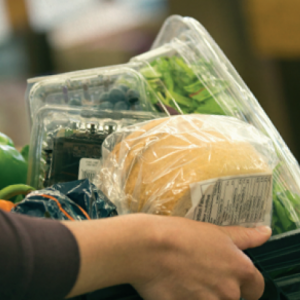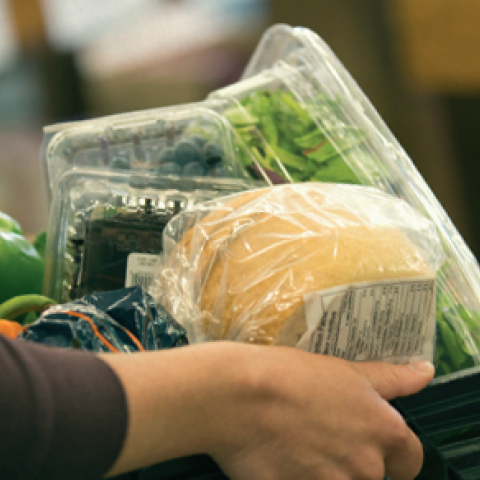
Food bank use in Canada now 25% higher than before the recession
This is a problem. A new report from Food Banks Canada estimates that 1.8 million Canadians will visit a food bank in 2014, with 841,191 individuals visiting a food bank in March 2014 alone. That represents a 24.5% increase since the recession seven years ago. Food bank use is now greater than it was 10 years […]
This is a problem.
A new report from Food Banks Canada estimates that 1.8 million Canadians will visit a food bank in 2014, with 841,191 individuals visiting a food bank in March 2014 alone.
That represents a 24.5% increase since the recession seven years ago. Food bank use is now greater than it was 10 years ago in the years preceding the recession.
And while Canada’s unemployment rate has ticked slightly down, food bank use has actually ticked up. Food Banks Canada attributes this, in part, to how “many Canadians are stuck in part-time, temporary, low-paying jobs.”
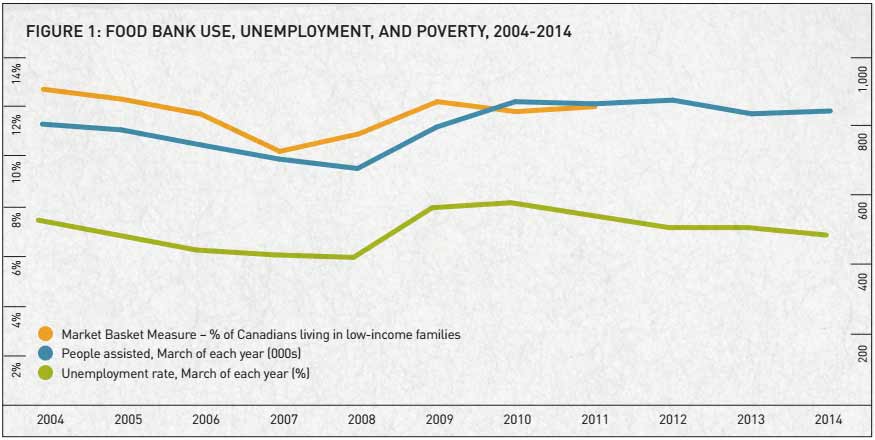
And you might be surprised when you take a look at who is using food banks: 11.7% of Canadians who used a food bank in March had a job. In Alberta alone, 21.9% of food bank users have a job.
Meanwhile, 23.4% of food bank users in March (about 200,000 users) were from single-parent families and 21.6% (about 180,000 users) were from two-parent families.
A little more than one-third (over 300,000 food bank users) in March 2014 were children.
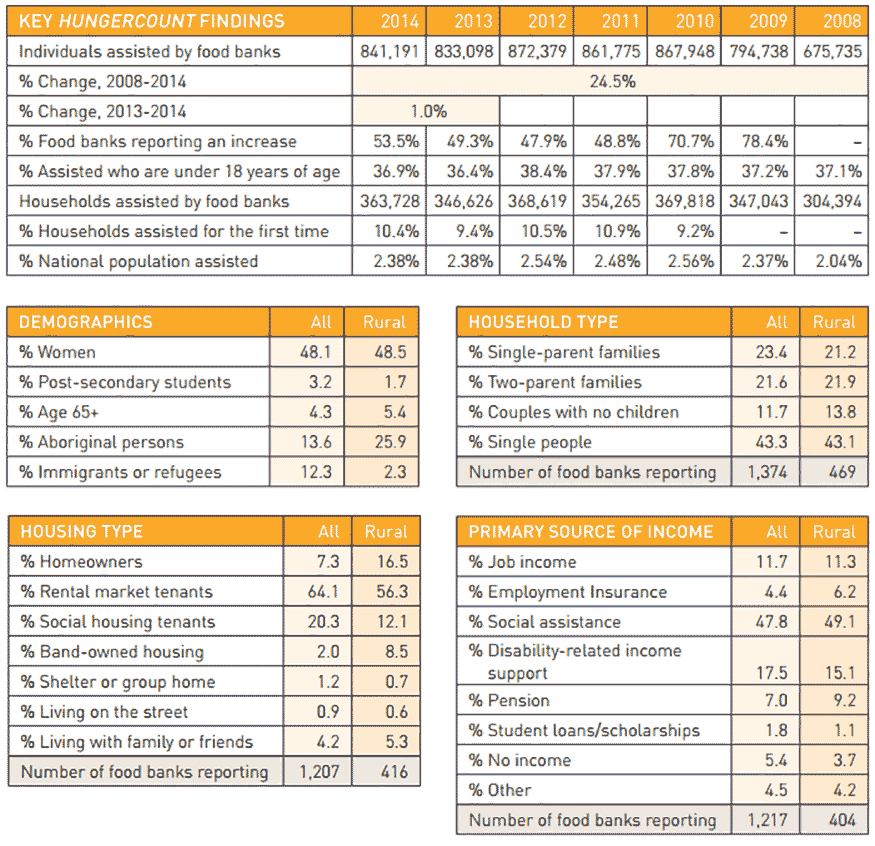
On a regional level, the increase in food bank usage on the Prairies is notable: Alberta’s food bank use has exploded by 48.2% since 2008, Saskatchewan by 51.1% and Manitoba by 52.5%.
While the Prairies may be thought of as a booming region of economic activity in recent years, the boom has driven has also driven higher costs of living, particularly in Alberta where housing costs soaring in particular.
And according to Public Interest Alberta, close to one in four people who work in Alberta earn less than $15 an hour. Vibrant Communities Calgary estimates that workers would need to earn $17.29/hr just to cover their costs of living and make ends meet.
Nationally, only Newfoundland saw a small decrease in food bank usage since 2008, jumping from 16.3% in Nova Scotia to 24.7% in British Columbia. Up North, the territories saw food bank use increase by 247% since 2008.
The territories “experience extremely high levels of food insecurity, ranging from 17% of households in Yukon, to 45% of households in Nunavut,” the report notes. In fact, the territories have the highest rates of adults and children who “go completely without food for a meal, or for a day.”
This is what that looks like:
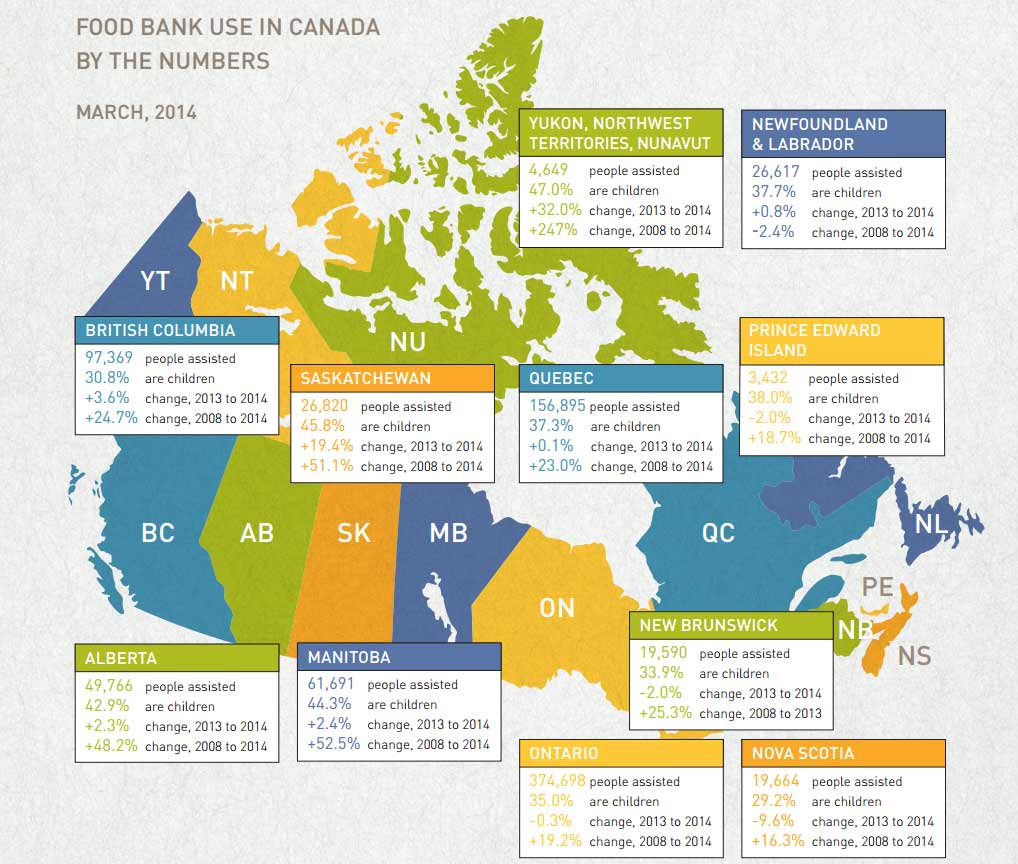
Our journalism is powered by readers like you.
We’re an award-winning non-profit news organization that covers topics like social and economic inequality, big business and labour, and right-wing extremism.
Help us build so we can bring to light stories that don’t get the attention they deserve from Canada’s big corporate media outlets.
Donate

